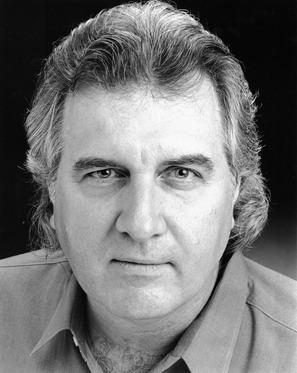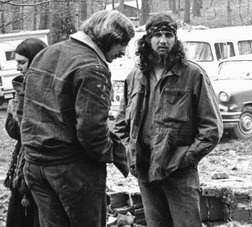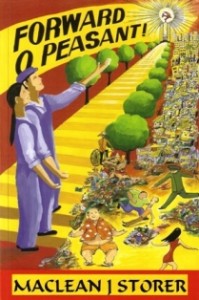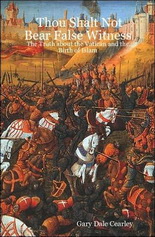I recently read about a tragic case of fratricide in Ohio in which the murderer, Larry Evans, Jr., killed his older brother, Brian Evans, a local policeman. The family, and many in the town, have been in shock over this case. I recently read and reviewed an excellent book by author Robert Paul Blumenstein, Snapping the String, that centered around a case of a man who’d been trapped in an institution for criminally insane. I was a bit more than curious to see how Robert would view such a case so I asked him for a short interview. Here is what he had to say…

Robert Paul Blumenstein, author of Snapping the String
In Snapping the String your main character was confined, albeit unjustly, for years in an institution as criminally insane. Larry Evans, Jr., the subject of this article, will also go to such an institution but at the end of the article hope is held out for Evans that he will be freed and not spend anything near a life sentence. As I have come to learn Snapping the String is a loose metaphor for purgatory. Would Evans’s sentence be comparable to purgatory and why?
You are correct to identify the “purgatory” metaphor in Snapping the String. As far as Larry Evans, Jr. experiencing a similar type of purgatory, yes, he will experience that same effect. Let me give you four examples of similar scenarios that have already passed through the Larry Evans, Jr. sentencing phase and you might see why I feel this way. However, not all these cases received a “guilty by reason of insanity” verdict and didn’t even necessarily pursue that defense.
First, consider John W. Hinckley, Jr. with his botched attempt to assassinate President Ronald Reagan. In the public’s mind, there was very little doubt that Hinckley was mentally ill. Unlike the Evans trial, no one cursed the defendant or screamed out for justice in the courtroom during Hinckley’s trial. In fact, the public seemed quite satisfied overall with the outcome. And recently, even more incredibly, we’ve seen some leniency demonstrated by Hinckley’s mental facility granting weekend visits to Hinckley’s wealthy family. Imagine that, after shooting a president!
Consider Charles Manson, though he was not deemed insane, hasn’t society decided that he is just that? Generally, the public breathes a collective sigh of relief every time he’s denied parole. No one’s complaining about him remaining locked behind bars.
Third, let’s consider Mark David Chapman, John Lennon’s killer. He certainly played the “troubled” defendant card during his trial. Yet, when he was sentenced, Yoko Ono asked that he not be sentenced to death. Here we see sympathy exhibited by the victim’s family. (Interestingly, it was unlikely that Chapman would have been given the death sentence regardless Yoko’s plea for mercy.) Chapman is serving a twenty year to life sentence in New York’s Attica Prison. He’s recently been denied parole after twenty-eight years behind bars. He told the parole board that he’s sorry and “I’m a changed man.” Is he trying to tell us that he’s now “well?”
My last example involves a late friend of mine. He, his wife, and two young daughters were brutally murdered by a crack head. Ricky Gray (the murderer) claimed he was abused as a child and was “high” at the time of the killings. Therefore, he couldn’t be held responsible for his actions. The jury didn’t buy it. He was sentenced to death for each slaying. And more than likely this “insane” crack head will die as Virginia has executed more people than any other state in the union with Florida and Texas vying to unseat the Commonwealth from her venerable status.
All these cases have involved people who committed heinous criminal acts. Hardly anyone would dispute the fact that each one of these criminals exhibited to the world that they were “crazy.” That’s just public opinion, though. What about the institution of mental health? Do they do any better of a job determining that these killers are insane than public opinion?
Larry Evans, Jr. will experience a “pugatorious” wait while incarcerated in the secured forensic unit of Ohio’s mental hospital. I have a feeling the public will make it a long stay.
This murder case is similar to the one in your book in that the victims were family and the judicial system sent the accused to a mental institution. But that is where the similarities end. In the Evans case there were witnesses and the defendant was obviously and admittedly guilty. Evans’s defense attorneys were not public defenders, but were privately hired. Do you feel that had your protagonist had this kind of representation that he would have fought and won his battle earlier or conversely if Evans would have had a public defender he would be standing trial rather than getting an insanity ruling?
Before I answer that, I want to say that there is a fundamental difference between the incarceration of Peyton Stephen Costello and Larry Evans, Jr. Larry Evans may have in fact manipulated the system to escape facing the harshest sentence for his crimes whereas Peyton was manipulated by the system to receive a harsh sentence for something that he did not do.
Also, remember, Gary Dale, less than one-half of one percent of people charged for the crime of murder have received a “guilty by reason of insanity” verdict. It’s little used with little success by defense attorneys. Recently, a preacher’s wife in Texas murdered her five children and used that defense successfully. I think she was a product of the media to show how she had been driven insane by her domestic circumstances. The public bought it. But what about the Smith woman in South Carolina who drowned her two children in an abandoned rock quarry and later copped the insanity plea? The public didn’t buy it. Ironically, a reporter uncovered the fact that the white woman had a black lover and wanted to get out of her then current domestic situation in order to be with her lover. No, the public really didn’t buy that one!
And so, Peyton faced a similar situation. He was a hippie, living in the year 1968, experimenting with LSD in a very conservative Richmond, Virginia. My point in Snapping the String was that the public wouldn’t have bought Peyton spitting on the sidewalk.
Also, we see Catherine, Peyton’s sister, has already been convinced by the police that Peyton was guilty, and the mental institution convinced her that he was insane. His situation was hopeless. I was a hippie in 1968 living in Greenville, South Carolina. I was considered insane just for getting up in the morning and pulling on a pair of bell bottom pants. Can you imagine how the world would have viewed Peyton? Sure, if Peyton would have renounced his peace symbol, cut his hair, and showed up in court with a team of competent lawyers, he might have been found innocent. It really becomes the reason to leave him there in the institution.

Robert Paul Blumenstein many years ago at the Union Grove Fiddlers Convention
I know nothing about the competency of public defenders. The example in Snapping the String is just a dramatic device. A lot of them stay in the public defender’s office well after they are able to move into private practice. The folks I’ve known are very dedicated to serving a disadvantaged population.
Can there be atonement for someone who is criminally insane? Why or why not? Is keeping these people away from the public enough?
That’s a tough question. Punishment, in the American justice system, has never really been based on atonement, though recent attempts in the law at “restitution” try to establish this principle. Punishment in America is based on vengeance. I believe Chief Messer’s comment drives this point home. Somehow, in his mind, Evans’ incarceration in the mental institution will be a holiday. Perhaps Chief Messer ought to read Snapping the String.
I guess, Gary Dale, you’re really asking me if a person can be healed of being a criminal? Under current methods of treatment, I’d say that is unlikely. Keeping someone doped up and pacified is hardly atonement, much less healing. Then, the inmate’s release is just as problematic. How can you track that person to make sure he keeps it clean? Perhaps one of my favorite films is A Clockwork Orange. It drives home the frustration of society’s attempt to rehabilitate the criminal. I think Chief Messer should see this film after he finishes reading Snapping the String.
I think it is absurd to pass a law striking down the “guilty by reason of insanity” plea. And as far as Messer saying that the victims and the victims’ families were dealt a double-whammy by this verdict solely based on this type of plea is also absurd. Messer represents the “lock ‘em up and throw away the key” mentality. This man would only be happy to see Evans squirming at the end of rope.
So, what’s the answer? There really may not be one. It’s unlikely that we’ll ever be able to see real reform in the criminal justice system. This notion of treating a criminal as a “sick person” seems to be heading in the right direction, yet now, nothing is being held out that indicates that we will abate the problem of criminal rehabilitation during our lifetimes. Even pedophiles that have been “chemically castrated” have been known to commit more sex offenses against children.
But for now, I favor keeping these people locked up, and in some cases, for good to protect us from them committing such injurious acts against society ever again. So, Messer has that part of the principle right, it’s the “forget about them” part that doesn’t work. What about the wrongfully accused? What about Peyton Stephen Costello in Snapping the String? What if it had worked out that society did forget about him? Peyton was innocent. Here in Virginia Ronald Coleman was executed for rape and murder and exonerated posthumously. An innocent man died at the hands of the state. What about Ronald Coleman and his family? Aren’t they victims, too?
It is interesting that the one of the advocates to stay the execution of John Wayne Gacy for the murder of 33 young boys and men was an agent for the FBI. His reason? By killing John Wayne Gacy, we lost our opportunity to study the psyche of a serial killer.
 Gary Dale’s RSS Feed
Gary Dale’s RSS Feed






Comments on Aux Arcs!